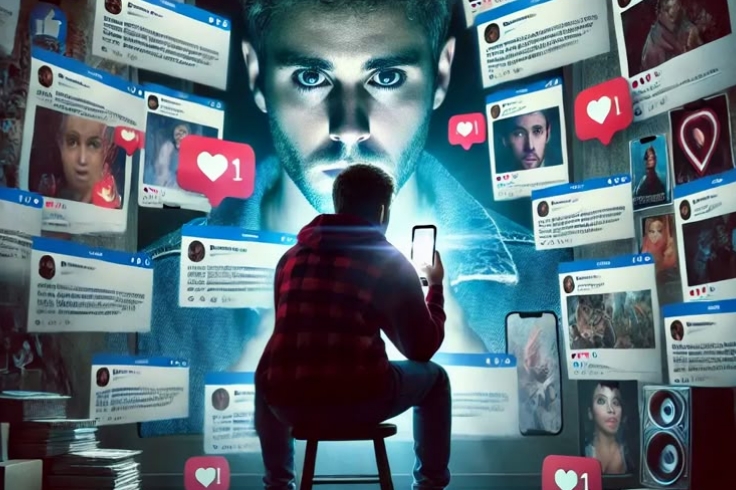The Psychological Effects of Social Media: Why It Makes You Unhappy and How to Protect Your Mental Health
Scrolling through social media has become as instinctive as breathing. A spare moment in the elevator, a lull in conversation, or a quiet evening at home often finds us reaching for our phones, immersing ourselves in curated snippets of other people’s lives through Instagram, TikTok, or Facebook. While social media platforms were created to connect us, they often leave us feeling disconnected from ourselves, our goals, and our realities.
Why does this happen? What was once created to bring us closer now often leaves us feeling distant—from ourselves, from reality, and from our goals.
The answer lies in the psychology behind our digital habits—and it’s time we understood it. Let’s explore how to maintain a healthier relationship with social media.
One of the primary culprits of dissatisfaction is the illusion of perfection that social media fosters. Instagram, TikTok, and other platforms serve as highlight reels—showcasing only the best moments: flawless selfies, milestone achievements, luxury vacations, and seemingly effortless success. Rarely do we see the behind-the-scenes struggles, failures, or mundane moments that make up the bulk of life.
When we compare our real lives—complete with stress, setbacks, and unglamorous routines—to these highlight reels, it’s easy to feel like we’re falling short. This distorted comparison warps our perception of reality, making our perfectly normal lives seem inadequate.
Social media thrives on validation through metrics like likes, comments, and follower counts. While these features were designed to enhance engagement, they’ve also created a dangerous feedback loop. A post that garners fewer likes than expected can trigger feelings of rejection or failure, even if it’s something as trivial as a vacation photo or a witty tweet.
The chase for validation can make us prioritize external approval over genuine self-worth. Over time, this can erode our mental health, leaving us perpetually unsatisfied, regardless of the number of hearts or thumbs-up icons we accumulate.
Social media is a constant stream of everyone else doing better. From career promotions to startup launches and lavish brunches, it often seems like life is happening everywhere except where you are. This is the Fear of Missing Out (FOMO) in action.
FOMO convinces us we’re behind in life—even if we’re not running the same race. This leads to anxiety, restlessness, and the persistent feeling that our own journey is less valuable. Social media platforms are engineered to keep you scrolling. With advanced algorithms, they learn what you like and feed you more of it, creating an addictive cycle. However, the more time we spend online, the less time we invest in our offline lives.
This digital imbalance makes us feel unproductive, emotionally drained, and disconnected from the real relationships and goals that bring true satisfaction.
How to Protect Your Happiness in a Social Media-Driven World
While social media has its downsides, it’s not inherently bad. It’s a powerful tool that can inspire, connect, and educate—when used mindfully. Here’s how to protect your mental well-being in a social-driven world:
Curate Your Feed: Follow accounts that inspire, educate, or genuinely bring you joy. Unfollow those that trigger negative emotions or unrealistic comparisons. Surround yourself with content that lifts you up, not drags you down.
Set Boundaries: Limit the amount of time you spend on social media. Use features like app timers or focus modes to ensure your usage doesn’t interfere with your personal life. Social media should add to your life, not dominate it.
Practice Gratitude: Regularly reflect on the positive aspects of your life. Gratitude journaling can help shift your focus from what you lack to what you have. Remember, there’s beauty in the ordinary moments that make up your unique journey.
Engage Mindfully: Be intentional about your interactions on social media. Rather than passively scrolling, actively engage with meaningful content or use platforms to connect with loved ones. When you’re more mindful, social media becomes a tool for connection, not comparison.
Take Breaks: Periodically detox from social media to reconnect with yourself and your surroundings. A short hiatus can do wonders for your mental clarity and overall satisfaction. You’ll be amazed at how much more present you feel in the real world when you step away from the screen.
Social media is a double-edged sword. While it has the potential to connect, entertain, and educate, it can also amplify insecurities and dissatisfaction. By understanding the psychological mechanisms behind your digital behavior and taking proactive steps to safeguard your mental health, you can harness the benefits of social media without falling victim to its pitfalls.
Remember, life’s worth is not measured in likes or follows. True satisfaction comes from living authentically, cherishing real-world connections, and appreciating the imperfect, beautiful journey that is uniquely yours. You have everything you need to thrive, and sometimes, stepping away from the noise is the best way to truly hear what matters most.
Behind every curated photo is a human being with ups and downs, just like you. The real power lies in how you choose to engage.
Because in the end, the most important “like” is the one you give yourself.













No comments